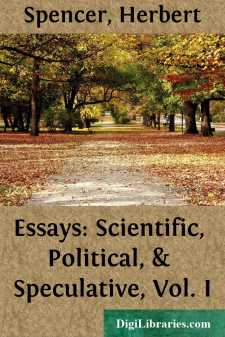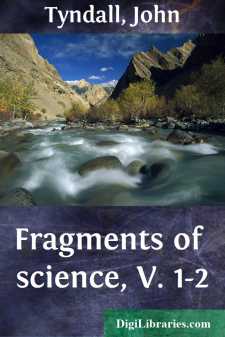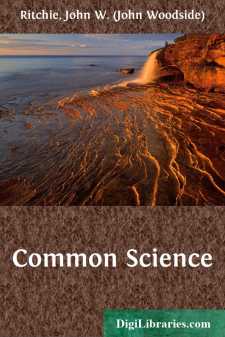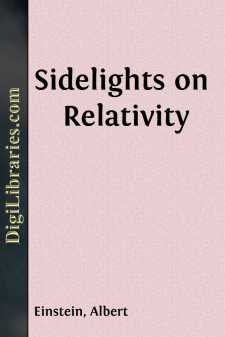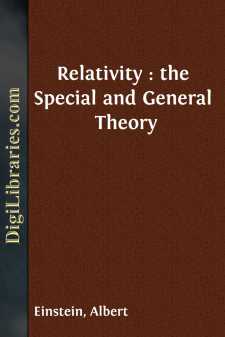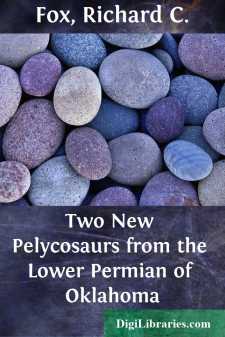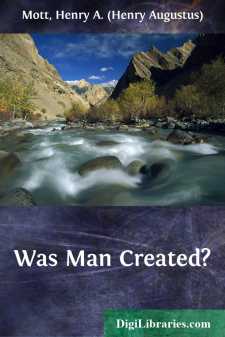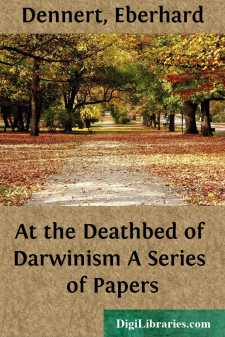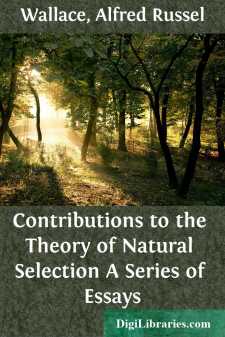Science
- Astronomy 18
- Biology 40
- Chemistry 13
- Electricity 1
- General 38
- History 6
- Light 1
- Paleontology 2
- Philosophy & Social Aspects 1
- Physics 3
- Relativity 2
- Study & Teaching 1
- Waves & Wave Mechanics 1
Science Books
Sort by:
by:
Herbert Spencer
THE DEVELOPMENT HYPOTHESIS. [Originally published in The Leader, for March 20, 1852. Brief though it is, I place this essay before the rest, partly because with the exception of a similarly-brief essay on "Use and Beauty", it came first in order of time, but chiefly because it came first in order of thought, and struck the keynote of all that was to follow.] In a debate upon the development...
more...
by:
John Tyndall
I. THE CONSTITUTION OF NATURE. [Footnote: 'Fortnightly Review,' 1865, vol. iii. p. 129.] WE cannot think of space as finite, for wherever in imagination we erect a boundary, we are compelled to think of space as existing beyond it. Thus by the incessant dissolution of limits we arrive at a more or less adequate idea of the infinity of space. But, though compelled to think of space as...
more...
Some thousands of years ago there was a city in Mesopotamia called Surippak. One night a strange dream came to a dweller therein, whose name, if rightly reported, was Hasisadra. The dream foretold the speedy coming of a great flood; and it warned Hasisadra to lose no time in building a ship, in which, when notice was given, he, his family and friends, with their domestic animals and a collection of...
more...
PREFACE A collection of about 2000 questions asked by children forms the foundation on which this book is built. Rather than decide what it is that children ought to know, or what knowledge could best be fitted into some educational theory, an attempt was made to find out what children want to know. The obvious way to discover this was to let them ask questions. The questions collected were asked by...
more...
by:
Albert Einstein
How does it come about that alongside of the idea of ponderable matter, which is derived by abstraction from everyday life, the physicists set the idea of the existence of another kind of matter, the ether? The explanation is probably to be sought in those phenomena which have given rise to the theory of action at a distance, and in the properties of light which have led to the undulatory theory. Let...
more...
by:
Albert Einstein
PART I THE SPECIAL THEORY OF RELATIVITY PHYSICAL MEANING OF GEOMETRICAL PROPOSITIONS In your schooldays most of you who read this book made acquaintance with the noble building of Euclid's geometry, and you remember — perhaps with more respect than love — the magnificent structure, on the lofty staircase of which you were chased about for uncounted hours by conscientious teachers. By reason of...
more...
by:
Richard C. Fox
In the course of examining material from fissure deposits of early Permian age collected from a limestone quarry near Fort Sill, Oklahoma, the author recovered several tooth-bearing fragments of small pelycosaurs. The fragments were examined, compared with descriptions of known kinds appearing in the literature, and determined to be new genera within the Nitosauridae (Edaphosauria) and Sphenacodontidae...
more...
PREFACE. This work was originally written to be delivered as a lecture; but as its pages continued to multiply, it was suggested to the author by numerous friends that it ought to be published in book-form; this, at last, the author concluded to do. This work, therefore, does not claim to be an exhaustive discussion of the various departments of which it treats; but rather it has been the aim of the...
more...
by:
Eberhard Dennert
PREFACE. The general tendency of recent scientific literature dealing with the problem of organic evolution may fairly be characterized as distinctly and prevailingly unfavorable to the Darwinian theory of Natural Selection. In the series of chapters herewith offered for the first time to English readers, Dr. Dennert has brought together testimonies which leave no room for doubt about the decadence of...
more...
PREFACE. The present volume consists of essays which I have contributed to various periodicals, or read before scientific societies during the last fifteen years, with others now printed for the first time. The two first of the series are printed without alteration, because, having gained me the reputation of being an independent originator of the theory of “natural selection,” they may be...
more...


